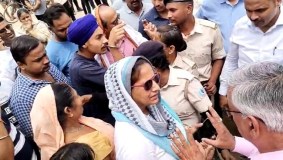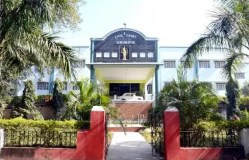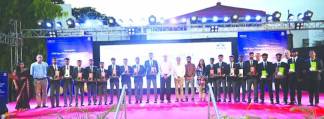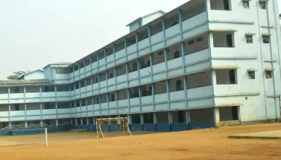Over 50,000 locals treated through Mobile Medical Unit of Tata Steel Foundation at Noamundi
Noamundi (West Singhbhum): In the tribal hamlets of Noamundi, healthcare services still remain inaccessible. Nearly 95 per cent of the inhabitants of these blocks live in rural areas with most of them belonging to the SC and ST communities.
They are largely dependent on the government block headquarter hospital but the distance from the rural homes to the hospital is often through difficult terrain making it difficult to reach. Also adding to the woes are the lack of transportation facilities.
The Tata Steel Foundation has been compensating this gap by providing treatment through Mobile Medical Unit (MMU) at outreach level amidst remote villages. This service that began in 2015 has touched the lives of more than 50, 000 people.
The services include free diagnosis and check-up, treatment, counselling, health, education and awareness to villagers and students. With the availability of these vans, raising awareness, ensuring preventive vaccination and encouraging regular medical check-ups among the rural population has become a possibility.
“The primary health centre services provided by the government are static by its nature of operations. So, access and availability of healthcare services at doorstep became easier through the MMU service. This has been beneficial especially for the expecting mothers, children and elderly,” says Mr Raghunath Suren, a senior citizen from Noamundi basti.

Patient details are registered and clinical parameters are captured, and medical consultation is subsequently provided. The unit is equipped with a doctor, a pharmacist, and a trained helper, who are trained to recognize symptoms of health-related ailments, conduct basic diagnosis of common diseases, prescribe and give medication and referrals to Tata Steel Hospital, Noamundi in case of further medical complications.
During the lockdown period, telephonic consultation system has been started where the patients are provided medical consultation and medicine are delivered on a door-to-door basis to the patients maintaining all safety protocols.
“There have been instances where the patient had no idea about the problem that they were facing. When we started, health seeking behaviour had a laidback attitude because people were mostly into superstition so they never sought the help of allopathy. Many were also reluctant to take help from the doctors but we did a number of counselling sessions to make them understand the need for medication,” says Dr Bhaskar Sardar, leading the MMU initiative.
“There are instances when the male members of the family are not available for days and then it becomes really difficult for the women in the family to take their sick children to the hospital. The MMU comes as a boon during such times,” added the doctor.
This apart, a number of healthcare initiatives have been undertaken by the Foundation in its operational areas under Noamundi. A number of specialised and general health camps are also hosted regularly in the operational areas. In the last five years, 53 camps have been conducted reaching out to over 4863 patients.
A Designated Microscopic Centre (DMC) with the help of Tuberculosis Control Department of Jharkhand is also running since the last five years. Treatment and consultations are provided free of cost to patients at the centre. The patients are identified by the TB coordinator, treatment extended and continuously followed by the team till the completion of the treatment and, till date, 295 patients have been treated.
Besides, the Tata Steel Hospital, Noamundi has been providing medical facilities to people living in and around the mining areas at Noamundi since 1925. The hospital is equipped with modern medical facilities and serves an almost 25km area with specialist doctors. The hospital has been conferred with the Prime Time Global Healthcare Excellence Awards 2016 under the category of “Best Patient Centric Hospital in Jharkhand”.
“We want to cover all health indicators in the next five years including the reduction of Infant Mortality Rate (IMR) and Maternal Mortality Ratio (MMR) and strengthening community-based health practices in the next five years,” says Tulsidas Ganvir, heading the CSR unit at Noamundi.






















